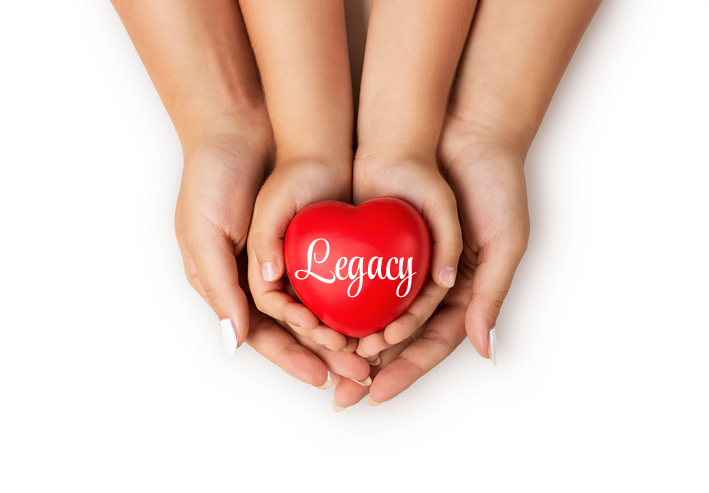By Karin Mizgala, Co-Founder and CEO Money Coaches Canada

Canada is on the verge of a colossal transfer of wealth from one generation to the next. Baby Boomers are expected to inherit roughly $750 billion by 2026; the largest shift of wealth in Canadian history according to a CIBC Capital Markets report. Maybe you are one of them.
There are currently more than 2.5 million Canadians over the age of 75—the largest cohort of that age group this country has ever seen. And the CIBC report estimates their total net worth at $900 billion plus. The reality is that many of these individuals will pass away over the next 10 years, either leaving that wealth to a spouse or to their children (most in their 50’s and 60’s).
But there is a problem that is going to make successfully managing an inheritance even more difficult.
Even though we are in the midst of the largest inter-generational wealth transfer in Canadian history, the majority of heirs are being kept in the dark. A 2018 poll by IPC Private Wealth of Investment Planning Counsel revealed that 58% of affluent Canadians have not discussed instructions for their estate with their heirs
If you will be one of the beneficiaries of this huge wealth transfer, it’s important that you keep the following thoughts in mind.
The Death of a Loved One is a Very Difficult Time
Try as we might, through planning and conversations, we can never be fully prepared for the death of a loved one. The finality of it all can be very overwhelming. Sometimes it brings out strength, support and loving connection within a family, but unfortunately, it can also unleash old resentments or create new disputes. Just as each family member had a unique relationship with the loved one, the feelings that arise from the loss will also be unique.
Do your best to honour your loved one by keeping family interactions positive and constructive.
You’ve Probably Entered Unfamiliar Territory
 If you are the executor of the will, you will likely be dealing with people and situations you have never had to deal with before, all while keeping on top of your other life commitments.
If you are the executor of the will, you will likely be dealing with people and situations you have never had to deal with before, all while keeping on top of your other life commitments.
As an executor you will need to locate the will, gather financial records, contact banks, Canadian Revenue Agency (CRA), insurance companies, and myriad other people and agencies. Be patient with yourself and hire professional help if you feel unable to handle everything on your own.
If you are not the executor, be understanding and helpful to whoever is handling that role. The more supportive everyone is, the smoother the process.
Make the Most of Your Inheritance
Whether your family legacy has been passed down for several generations, or been built by your benefactor, it’s important to recognize the work and care that went into creating your inheritance. Gratitude for the opportunities and security it provides will no doubt inspire you to want to make the most of this gift.
The best way to do that; is to give yourself time. Time to grieve and time to plan, and when you are ready, here are four things to consider:
1. Create a Solid Foundation for Today
If you have credit card debt, using some of your inheritance to eliminate it, is a smart move. After that, consider paying off other bank loans, car loans, home equity loans and mortgages. Pay off your highest interest debts first.
Being debt free is very empowering. Without the weight of debt and interest payments, you can focus your energy—and money—on your short and long term financial goals.
2. Plan for a Secure Tomorrow
As Canadians live longer, the need for more money in retirement has increased. It may be needed to fund an active lifestyle, or, if health issues arise, it may be required for assisted living expenses. Using part of your inheritance to top up an RSP or TFSA can be very beneficial to your savings, and your peace of mind. It’s smart to get advice from a financial professional—to ensure you make the most of your retirement investments.
And what about your rainy-day fund? Having four to six months of living expenses at hand is a wise practice, but often difficult to achieve. Your inheritance may be the just the opportunity to put it in place.
3. Build a “Launch” Pad for Your Children
 Whether it’s an education fund, money in trust for after university, or help buying their first home in an ever upward spiraling housing market; using some of your inheritance to give your kids a leg-up in life can be very gratifying.
Whether it’s an education fund, money in trust for after university, or help buying their first home in an ever upward spiraling housing market; using some of your inheritance to give your kids a leg-up in life can be very gratifying.
4. Think of Your Own Legacy
If you receive a very large inheritance, one large enough to be life-changing, then you have a unique opportunity to create a legacy for your own heirs. Or you may wish to leave funds to organizations or charities that are important to you. Having a solid investment plan to grow the estate is important.
A Money Coach Will Help You Plan
While it can be prudent to let your inheritance rest while your emotions are still raw, it’s not wise to let it sit indefinitely. An inheritance is a gift, and a responsibility.
You owe it to yourself, your benefactor and your heirs, to make the most of this legacy. A Money Coach is an unbiased ally, who will help you make a plan centred on your values and goals, and support you to make informed decisions along the way.
This post first appeared in 2018. It has been updated with current data and/or information and republished.



l will be getting a small amount of inheritance cash money from his RRSP and from his saving bank account.
I just turn 64 years this month and now receiving his pension.
Do I have to pay tax for the money that will be receiving?
Also when the property gets sold, how does it work, when I fill my income tax.
Thank you in advance
Vilma Kelly
Hi Vilma,
If you are the named beneficiary on your husband’s RSP, the money can be rolled tax-free into your RSP. If you then withdraw monies from your RSP, you will pay taxes on the amount withdrawn when you file your tax return for that year.
You will receive a T4A income tax slip for the pension income you receive which must be included in your tax return of that year. The tax rate depends on your total taxable income for the year.
If the property is considered your principal residence, there will be no taxes payable upon the sale. You do however need to declare the sale of your principal residence on your tax return the year it is sold. See: CRA – Report Sale Principal Residence
I recommend that you contact an accountant to help you your tax filings during this time of transition.
Hi Honey Coaches Canada, I am 48nyrs old and my Uncle who lived in the States (Pennsylvania) passed away last November and bequeathed portions of a few life insurance policies that equated to around $35K CAD (to which I am eternally grateful for). I used approx $28K to pay down my consumer debit (credit cards/car loan/unsecured line of credit). The balance is in my savings. I just found out that he had a Family Trust and again named me as one of 7 beneficiaries. He had outlined in his will that 1/3 of the trust be dispursed 1 year after his passing, then 1/2 of it 2 years after his passing and the balance 5 years after the anniversary of his death. I dont know anything about trusts and feel completly out of my element with this. I have dual citizenship (US/CAD) but have resided in Canada for over 35 years and have never worked in the US. What should questions should I ask the lawyers facilitating the taxe paperwork with regards to how to handle this? They have request i fill out a W-9 form and I don’t even know what the value of it is. Is it rude or me to request this information? Any tips or advice on how to handle this would be grea. I believe it’s taxes at a 15% in PA so do I have to pay those taxes or is thst tsken out of the value of the trust? And I’m not sure what I need to know about how to handle or report the funds in Canada. Plus I’m wondering what recommendations would you have for investing etc. I currently have a mortgage on a condo for approx $205K that I’d like to sell and then rent place and possibility travel abroad with the purpose of honoring him by being of assitance / service to others in need. Then perhaps reinvest in a newer property down the line. Any help or advice is greatly appreciated!! Thanks!
Sorry…meant Money Coaches Canada…dumb autocorrect!
You have some very admirable goals of honouring your uncle’s legacy by helping others! Working with an accountant who specializes in cross-border taxation would be the best way to have all of your questions answered and ensure these funds are reported properly in both Canada and the U.S. One of our Money Coaches would also be pleased to work with you to develop a plan for your investments and real estate goals. We invite you to schedule an initial consultation at your convenience.